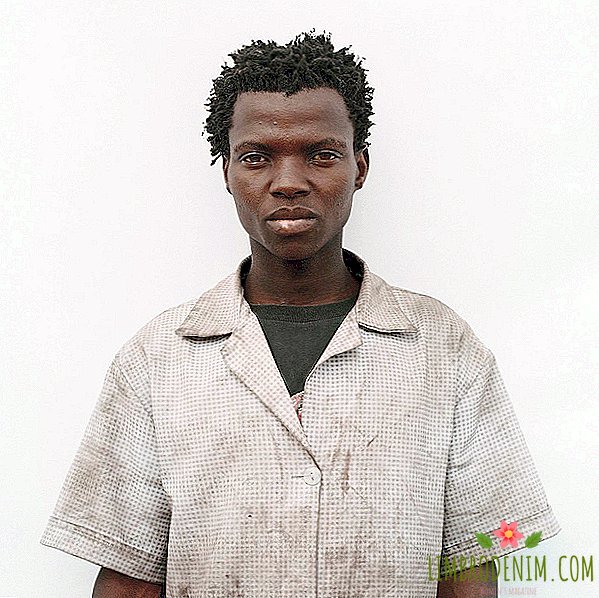Trolley Pushers: Johannesburg's Illegal Waste Bins
EVERY DAY PHOTOGRAPHERS AROUND THE WORLD looking for new ways to tell stories or to capture what we previously did not notice. We choose interesting photo projects and ask their authors what they wanted to say. This week we are publishing a project by Claudio Rasano, who tried to draw public attention to the hard work and lives of people who clean up our garbage and help clean the planet, but which we prefer not to think about.
For me, being a photographer means being able to look around, not living with closed eyes. There is a story behind every person I meet, and it is interesting for me to recognize them, to understand that the feelings and emotions reflected on their faces tell about their life and destiny. My series of portraits of the homeless with carts - an attempt to pay tribute to their work, to show respect for them. After all, in fact they are doing work, the importance of which is acutely built on the agenda of the day - they help to clean our planet of debris. I wanted to understand what they really are, to see their life for real. Very quickly, I realized that these guys, in fact, rake our shit. Every morning they start by picking and sorting our garbage cans, picking up plastic waste, bottles and scrap metal, and then taking them to the garbage receptacles. For example, the 21-year-old Katlekhon Matsenen has been working as a garbage sorter for three years, and the 40-year-old Moraia Moraia for six years. Both of them earn about 50 pounds a week. Every day they spend on the streets of Johannesburg, but no one asks the question - where do they drag this belongings? Somewhere outside the city, but every year the city borders are expanding. The amount of garbage is growing, the mountains of landfills are getting higher and higher, their outlines are spreading and occupying more and more space. The label "homeless" is often used in a broad sense, without regard for the circumstances of the life of each of the homeless. But their way of life is often the result of personal, and often economically unfavorable circumstances. The limitations that a combination of these problems imposes are clearly manifested in the lives of illegal waste collectors in Johannesburg. They pick up trash from the sidewalks, as well as trash containers from private and commercial areas in search of recyclable waste - for which money can be raised. They load all this rubbish into self-made carts and on foot, applying enormous efforts, drag them along many kilometers of streets to private buyers, where all this will be weighed and paid for.
Their work is illegal - they are not protected by the labor code and do not have any social privileges that hired employees of urban services have. Worse, they are often forced to be delinquent - the way they are forced to live and work does not fit the city rules. At the same time, they are tightly connected with legal, generally recognized urban institutions: they are one of the most regular suppliers in the waste management business, they are pedestrians, inhabitants of public spaces, competitive participants in the garbage market.














rasano.com




